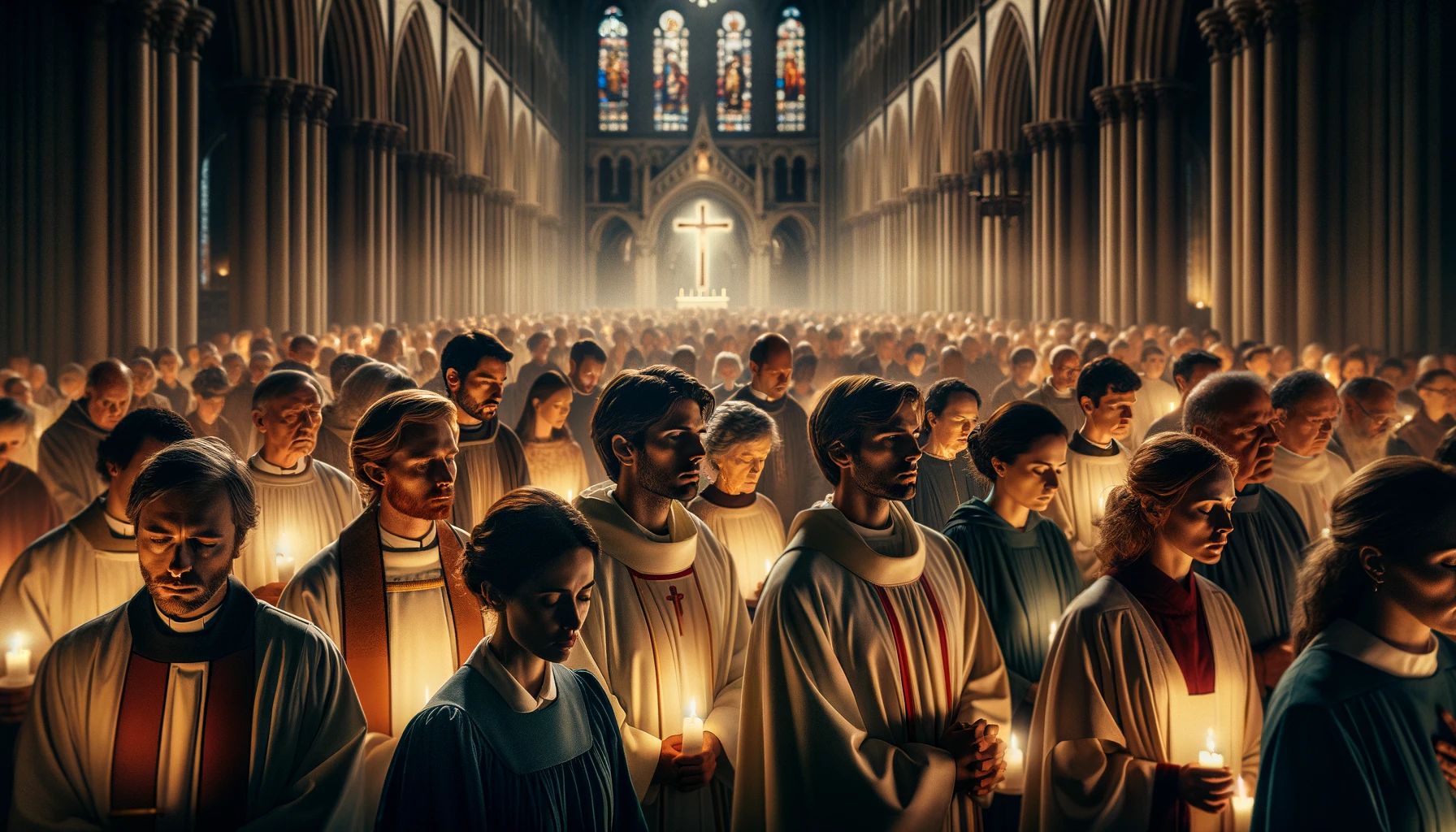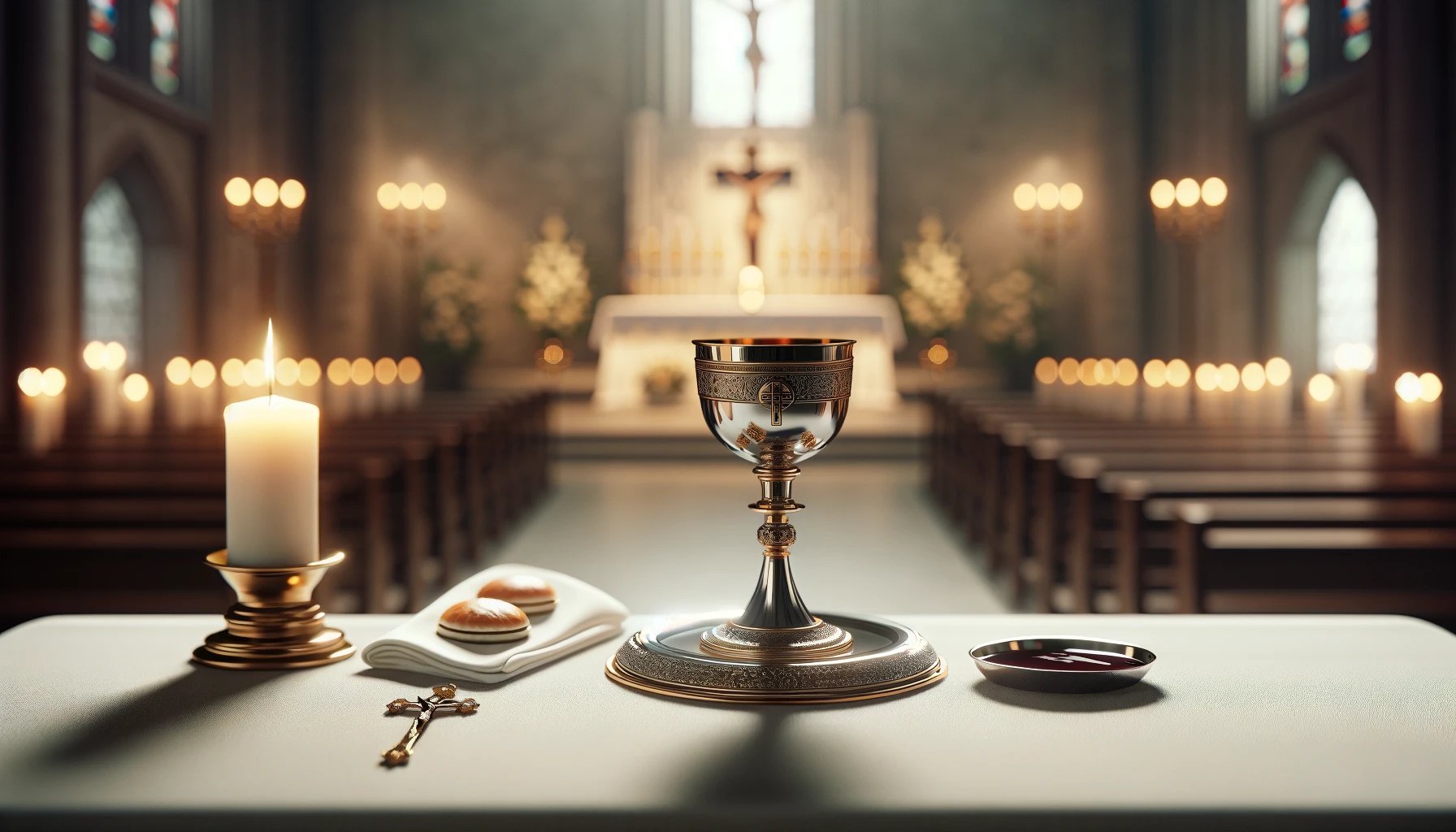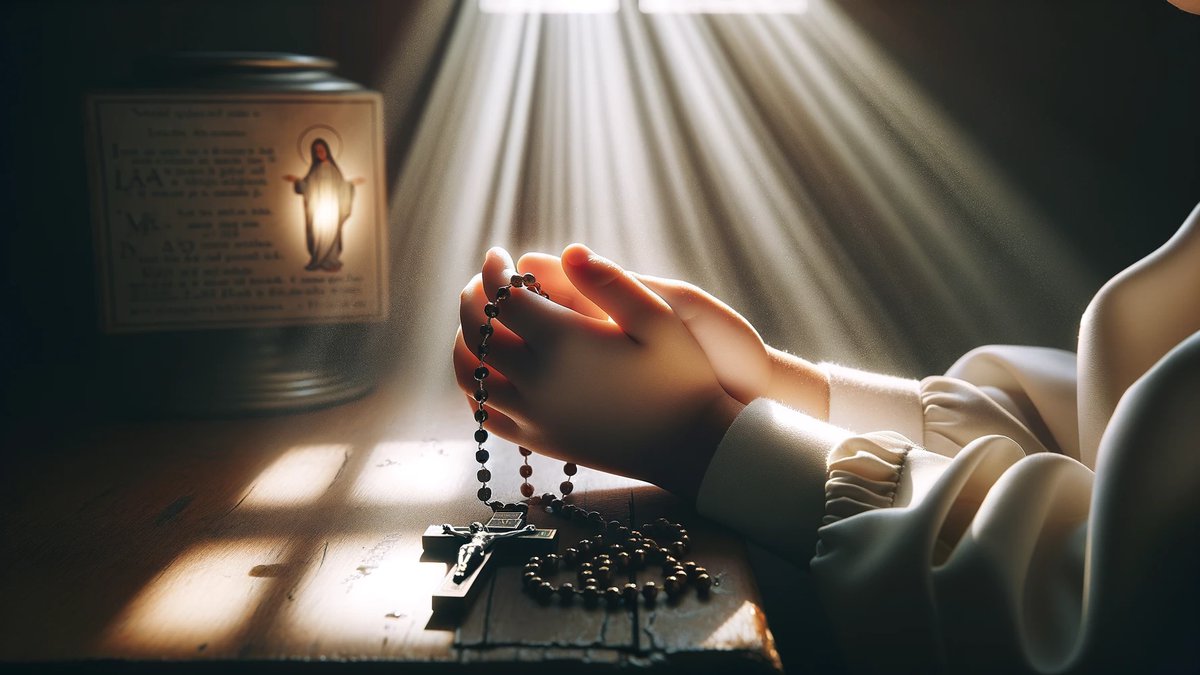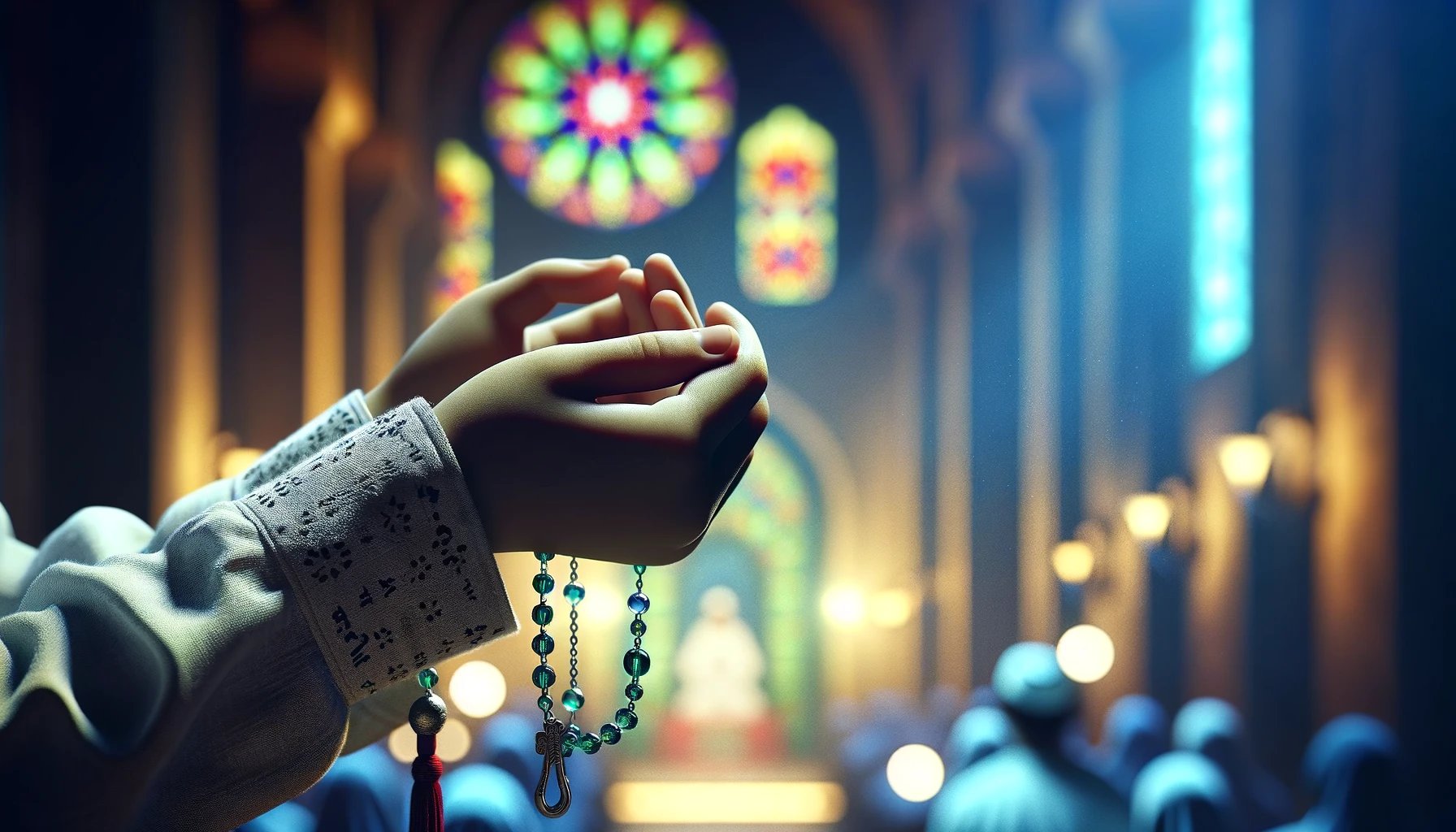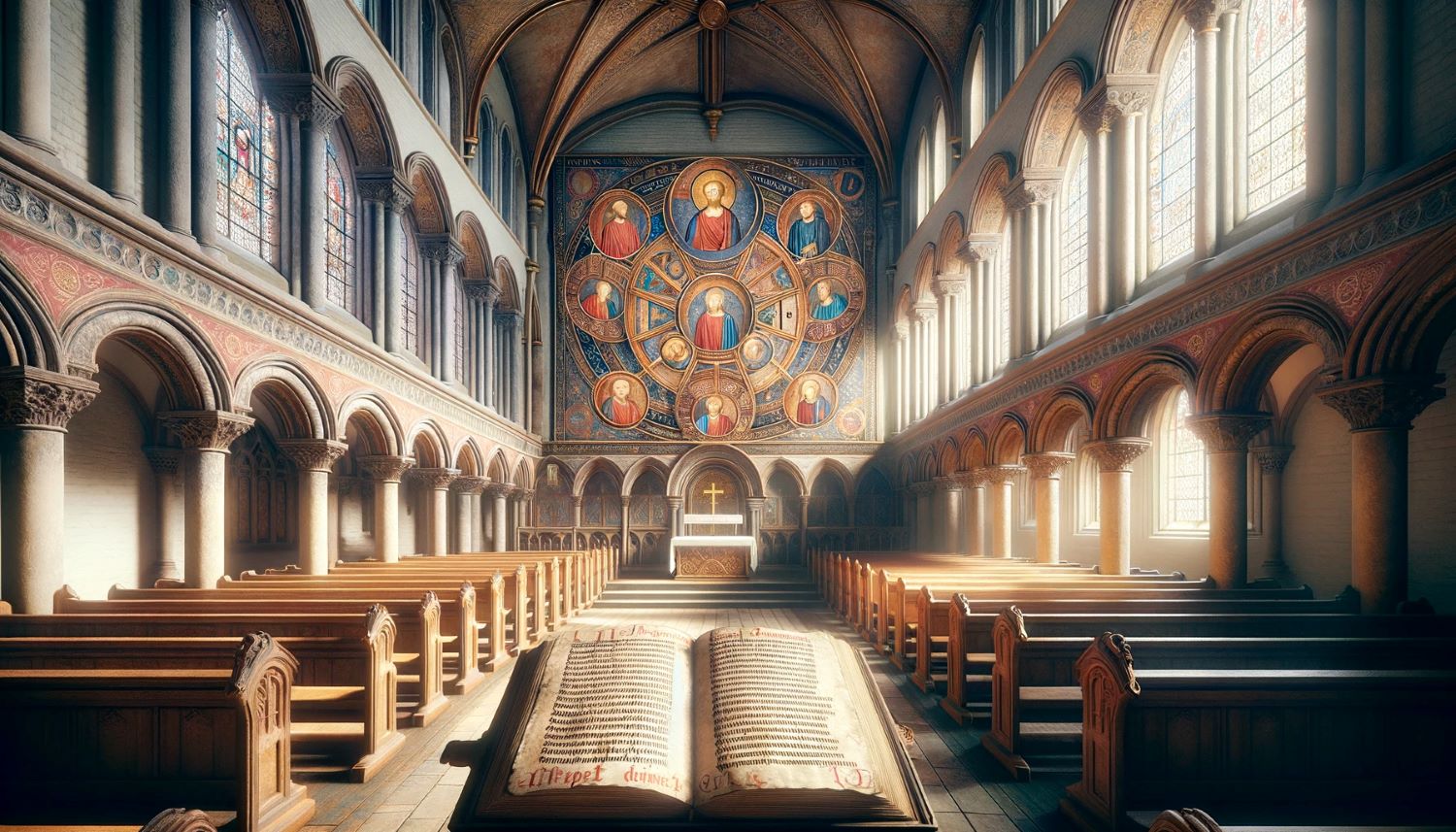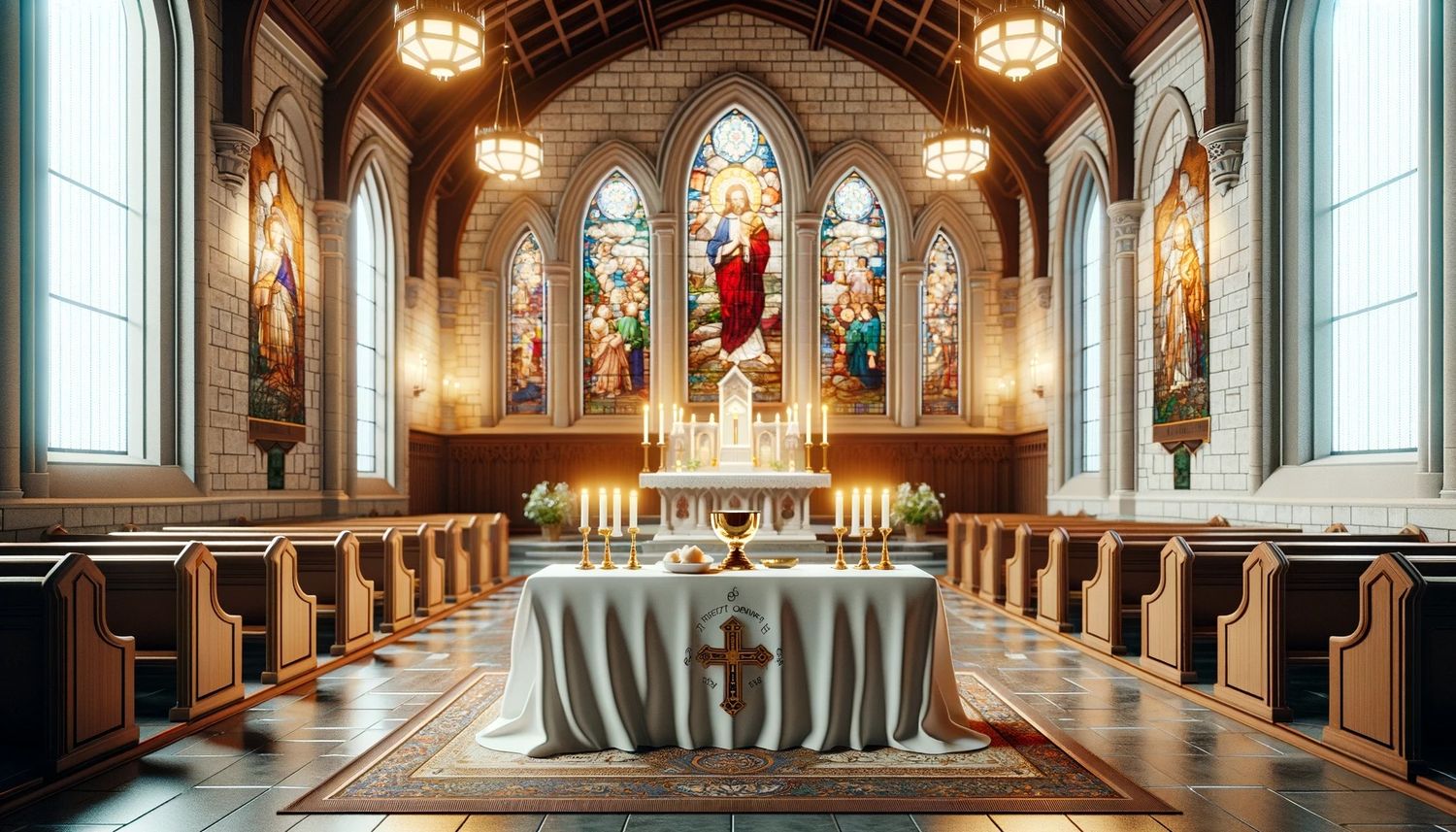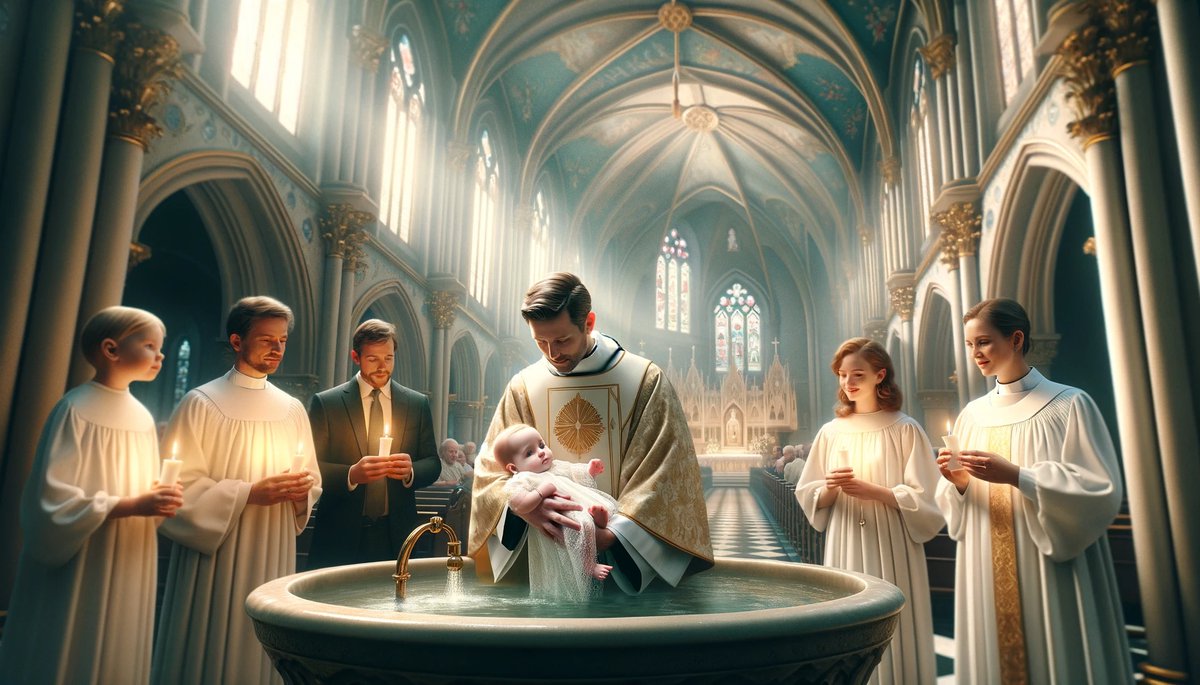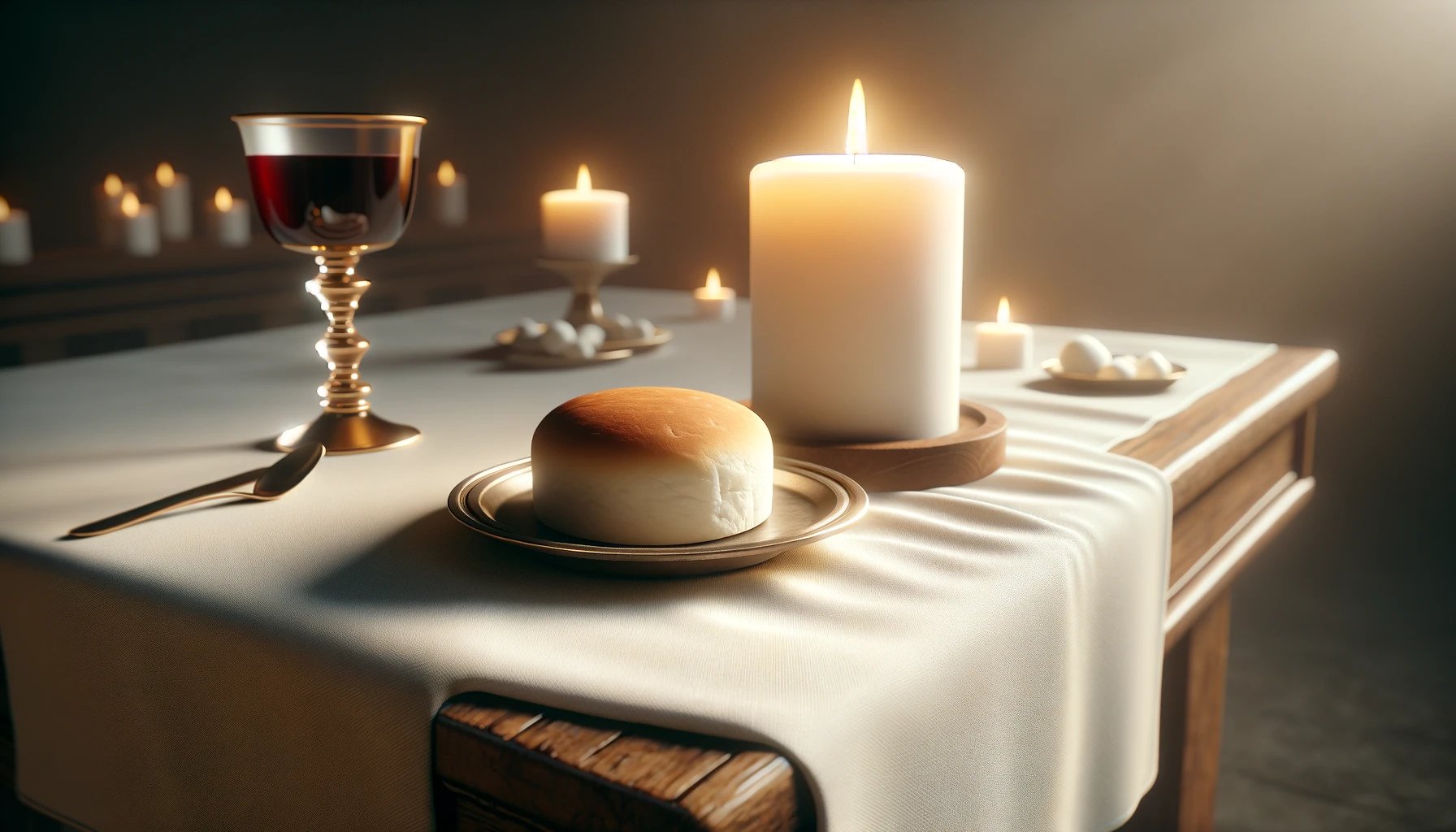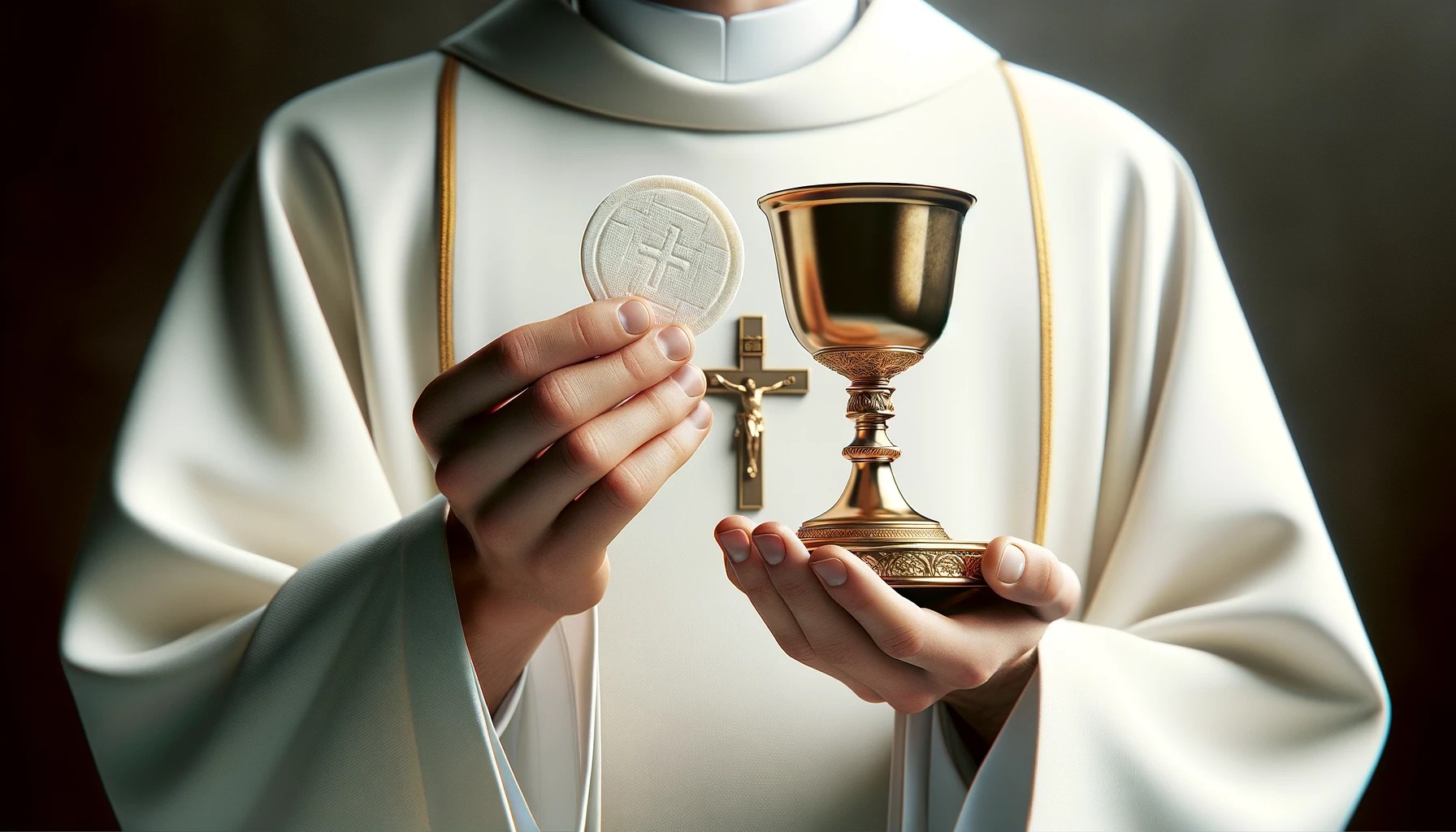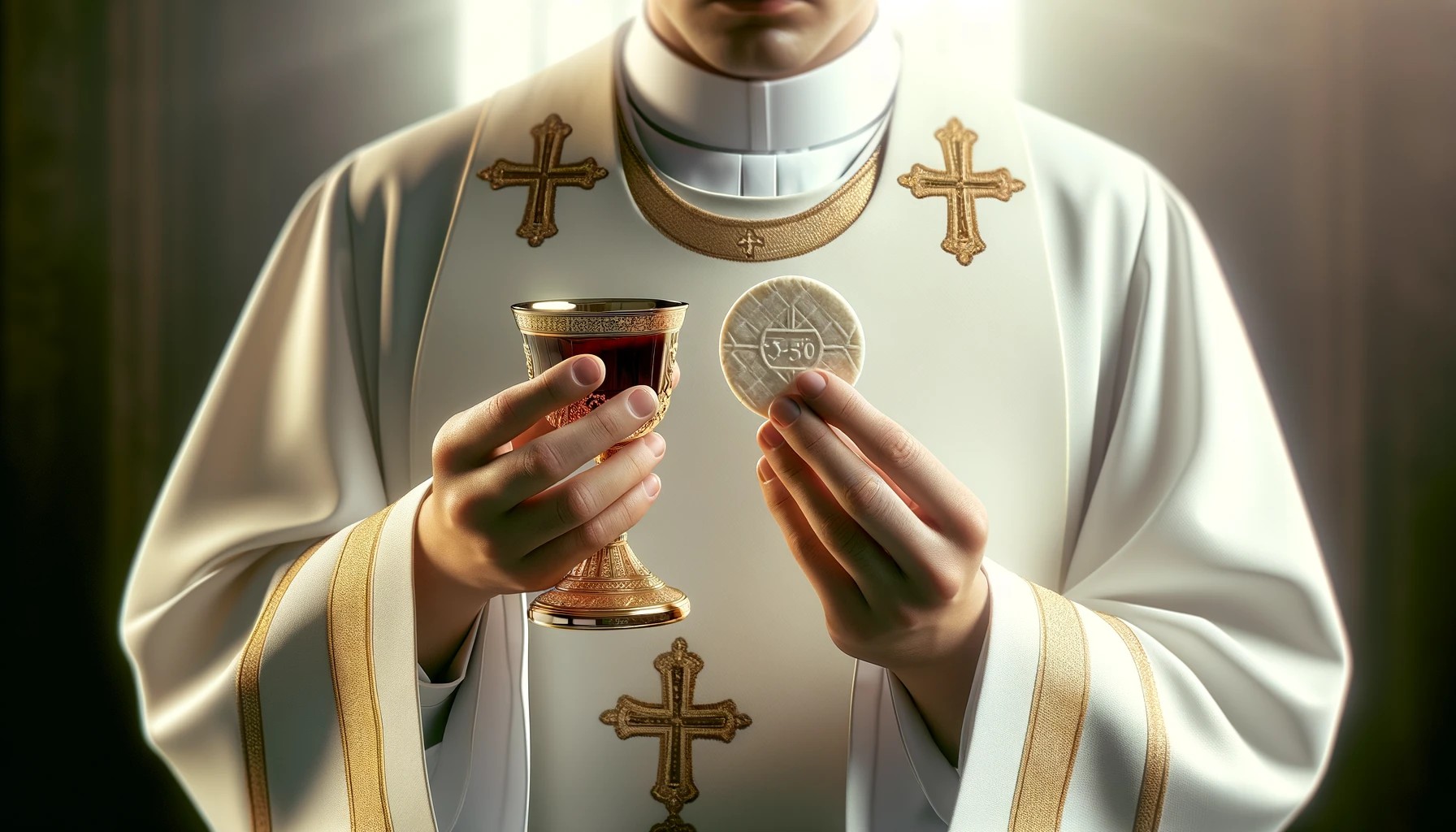Home>Theology and Spirituality>What Is First Holy Communion In The Catholic Church
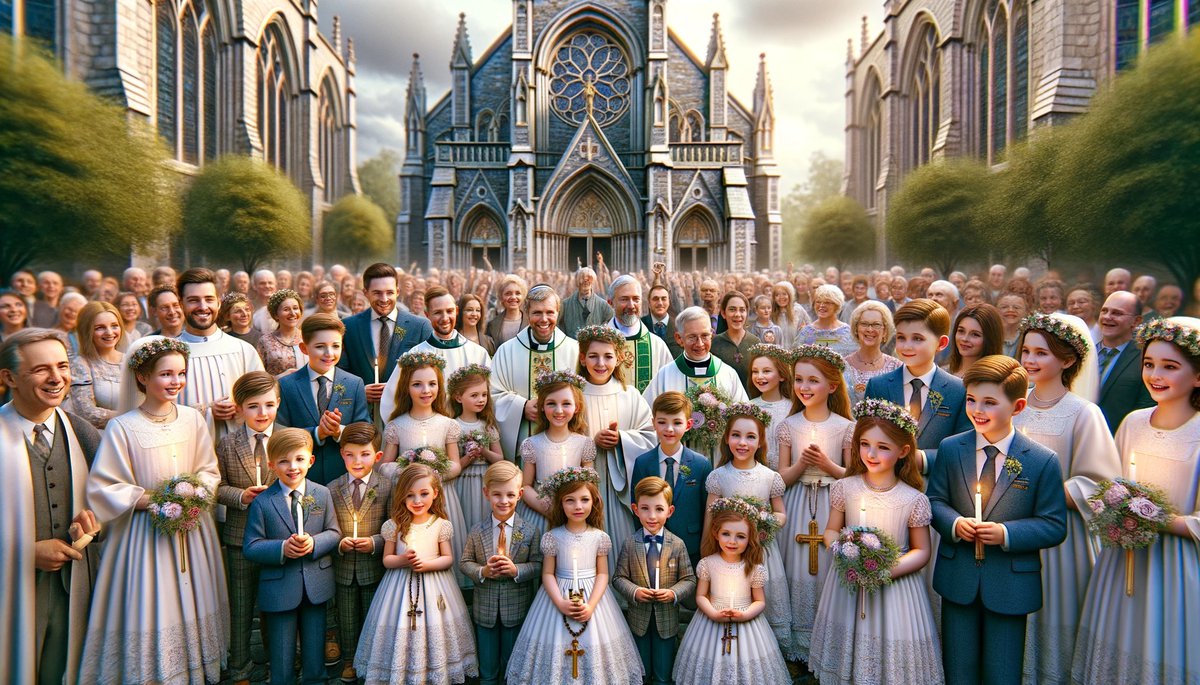

Theology and Spirituality
What Is First Holy Communion In The Catholic Church
Published: February 25, 2024
Jason DeRose, Managing Editor at Christian.net, uses his expertise in religion and journalism to deepen understanding of faith's societal impacts. His editorial leadership, coupled with a strong academic background, enriches the platform’s diverse content, earning him recognition in both journalism and religious circles.
Learn about the significance and traditions of First Holy Communion in the Catholic Church. Explore its role in theology and spirituality.
(Many of the links in this article redirect to a specific reviewed product. Your purchase of these products through affiliate links helps to generate commission for Christian.net, at no extra cost. Learn more)
Table of Contents
Introduction
First Holy Communion holds a special place in the hearts of Catholic faithful, marking a significant milestone in the spiritual journey of young believers. This sacred sacrament, also known as the Eucharist, is a revered tradition within the Catholic Church, symbolizing the reception of the body and blood of Jesus Christ. The occasion of First Holy Communion is a momentous event that is steeped in rich history, profound significance, and meticulous preparation.
As we delve into the essence of First Holy Communion, we will explore its historical roots, its profound significance within the Catholic faith, the meticulous preparation involved, the solemn ceremony, and the impact it has on the lives of those who partake in this sacred rite. This exploration will provide a deeper understanding of the spiritual and cultural importance of First Holy Communion within the Catholic Church, shedding light on the reverence and joy that accompanies this sacred milestone.
History of First Holy Communion
The history of First Holy Communion can be traced back to the Last Supper, a pivotal event in Christianity where Jesus Christ shared bread and wine with his disciples, instructing them to partake in remembrance of him. This act, known as the Eucharist, forms the foundation of the sacrament of Holy Communion within the Catholic tradition. The early Christian community continued this practice, emphasizing the spiritual significance of partaking in the body and blood of Christ.
The concept of children receiving their First Holy Communion began to take shape in the Middle Ages, with the Church gradually formalizing the age at which individuals could participate in this sacred rite. Over time, the age of seven emerged as the customary threshold for receiving First Holy Communion, signifying the age of reason and the ability to comprehend the spiritual significance of the Eucharist.
In the 1910s, Pope Pius X played a pivotal role in shaping the modern-day First Holy Communion tradition. He advocated for children to receive the Eucharist as soon as they reached the age of reason, thereby emphasizing the importance of this sacrament in nurturing the faith of young believers. This initiative led to a widespread shift in the approach to First Holy Communion, solidifying its place as a significant milestone in the lives of Catholic children.
Throughout history, the celebration of First Holy Communion has evolved to incorporate various cultural customs and traditions, reflecting the diverse tapestry of the Catholic faith across different regions. Despite these cultural nuances, the underlying essence of First Holy Communion remains rooted in the profound spiritual connection between the communicant and the body and blood of Christ.
The historical journey of First Holy Communion underscores its enduring significance within the Catholic Church, serving as a testament to the timeless tradition that continues to shape the spiritual landscape of believers around the world.
Significance of First Holy Communion in the Catholic Church
First Holy Communion holds profound significance within the Catholic Church, representing a pivotal moment in the spiritual journey of young believers. At its core, this sacred sacrament symbolizes the intimate union between the communicant and the body and blood of Jesus Christ, fostering a deep sense of spiritual nourishment and unity within the faith community.
The reception of First Holy Communion marks a crucial step in the initiation of young Catholics into the full participation of the Eucharist, signifying their readiness to partake in the central sacrament of the Catholic faith. This milestone moment is imbued with profound spiritual meaning, as it represents the communicant's conscious decision to embrace the teachings of Christ and to be nourished by his divine presence in the Eucharist.
Furthermore, First Holy Communion serves as a powerful expression of the Catholic belief in the real presence of Christ in the consecrated bread and wine. Through this sacrament, participants are invited to encounter the living Christ in a tangible and transformative manner, deepening their connection to the sacred mysteries of the faith.
In addition to its spiritual significance, First Holy Communion holds immense cultural and communal importance within the Catholic Church. The celebration of this sacrament brings families, friends, and the broader faith community together in joyous unity, as they bear witness to the young communicants' embrace of their faith. It fosters a sense of belonging and solidarity, reinforcing the communal bonds that form the foundation of the Catholic faith.
Moreover, the experience of receiving First Holy Communion often leaves a lasting impression on young believers, shaping their understanding of the Eucharist and instilling a sense of reverence for the sacred rituals of the Church. This early encounter with the Eucharist lays the groundwork for a lifelong spiritual journey, nurturing a deep and abiding faith that sustains individuals throughout their lives.
Ultimately, the significance of First Holy Communion in the Catholic Church extends far beyond a mere ceremonial rite; it embodies the profound spiritual, cultural, and communal dimensions of the Catholic faith, leaving an indelible mark on the hearts and souls of those who partake in this sacred sacrament.
Preparation for First Holy Communion
The preparation for First Holy Communion is a meticulous and formative process that plays a pivotal role in shaping the spiritual foundation of young Catholics. This period of preparation is designed to instill a deep understanding of the significance of the Eucharist and to cultivate a sense of reverence for this sacred sacrament. It is a time of spiritual growth, education, and reflection, as children embark on a journey of faith that culminates in their first reception of the body and blood of Christ.
The preparation for First Holy Communion typically begins well in advance, allowing ample time for children to absorb the teachings of the Church and internalize the spiritual significance of the Eucharist. Central to this preparation is the catechesis, or religious instruction, which equips children with the knowledge and understanding necessary to approach the sacrament with reverence and understanding. Catechists, often supported by parents and the broader faith community, play a crucial role in guiding children through this educational process, imparting the teachings of the Church and nurturing a deep appreciation for the Eucharist.
In addition to formal religious instruction, the preparation for First Holy Communion often includes spiritual formation activities that engage children in prayer, reflection, and acts of kindness. These activities are designed to foster a personal connection to the faith and to instill the values of compassion, gratitude, and reverence. Through prayerful reflection and participation in charitable endeavors, children are encouraged to embrace the teachings of Christ and to embody the spirit of love and service exemplified in the Eucharist.
Furthermore, the sacrament of Reconciliation, also known as Confession, is an integral part of the preparation for First Holy Communion. This sacrament provides children with the opportunity to seek forgiveness for their sins and to experience the healing grace of God, ensuring that they approach the Eucharist with hearts that are open and pure. The sacrament of Reconciliation serves as a profound moment of spiritual renewal, allowing children to reconcile with God and to embrace the transformative power of forgiveness.
As the day of First Holy Communion approaches, children and their families often engage in special rituals and traditions that mark this significant milestone. These may include attending retreats, participating in rehearsals for the ceremony, and engaging in meaningful discussions about the spiritual significance of the Eucharist. These collective experiences serve to deepen the sense of anticipation and reverence surrounding the upcoming reception of the Eucharist, fostering a profound appreciation for the sacredness of the occasion.
In essence, the preparation for First Holy Communion encompasses a holistic approach to spiritual formation, encompassing education, prayer, reconciliation, and communal rituals. This comprehensive preparation equips children with the knowledge, values, and spiritual readiness necessary to approach the Eucharist with reverence, understanding, and a deep sense of spiritual connection. It lays the groundwork for a transformative encounter with the body and blood of Christ, shaping the hearts and minds of young believers as they embark on this sacred journey of faith.
The Ceremony of First Holy Communion
The ceremony of First Holy Communion is a deeply reverent and joyous occasion that marks the culmination of the meticulous preparation undertaken by young Catholics. This sacred rite is infused with profound spiritual significance, as it represents the moment when children receive the body and blood of Jesus Christ for the first time, thereby entering into a deeper communion with their faith.
The ceremony typically takes place within the solemn and hallowed setting of a Catholic church, where the sacred rituals and traditions of the faith are observed with utmost reverence. As the communicants, adorned in their pristine white attire, gather with their families and the faith community, a palpable sense of anticipation and reverence fills the air, setting the stage for a transformative encounter with the Eucharist.
The ceremony commences with a procession, during which the communicants, often accompanied by their peers, approach the altar in a display of solemn dignity. This symbolic journey mirrors their spiritual readiness to partake in the Eucharist and underscores the significance of this milestone moment in their lives. The procession is a poignant reflection of the communal support and encouragement that surrounds the communicants as they prepare to receive the body and blood of Christ.
Central to the ceremony is the Liturgy of the Eucharist, a sacred and time-honored ritual that lies at the heart of the Catholic faith. As the celebrant consecrates the bread and wine, transforming them into the body and blood of Christ, the communicants and the assembly bear witness to the profound mystery of the Eucharist. This transformative act serves as a poignant reminder of the real presence of Christ in the consecrated elements, inviting the communicants to partake in the divine banquet with hearts full of reverence and gratitude.
The moment of First Holy Communion itself is a deeply personal and sacred experience for each communicant. As they approach the altar to receive the Eucharist, a profound sense of awe and humility envelops them, underscoring the gravity of this transformative encounter with the living Christ. With each communicant partaking in the Eucharist, the faith community bears witness to the spiritual nourishment and unity that the sacrament imparts, fostering a sense of communal joy and solidarity.
Following the reception of the Eucharist, the ceremony often includes moments of prayer, reflection, and communal hymns, allowing the communicants and the assembly to express their gratitude and reverence for the sacred mysteries they have encountered. These collective moments of prayer and thanksgiving serve to deepen the spiritual impact of the ceremony, fostering a sense of communal celebration and unity within the faith community.
In essence, the ceremony of First Holy Communion is a sacred and transformative experience that encapsulates the profound spiritual significance of the Eucharist. It serves as a testament to the enduring traditions and sacred rituals of the Catholic faith, leaving an indelible mark on the hearts and souls of the communicants as they embark on a lifelong journey of faith and communion with Christ.
After First Holy Communion
After receiving their First Holy Communion, young Catholics embark on a transformative phase of their spiritual journey, marked by a deepened sense of faith, communion, and responsibility. This significant milestone serves as a springboard for continued growth and engagement within the Catholic faith, shaping the lives of the communicants in profound ways.
Following their First Holy Communion, children are encouraged to nurture and deepen their relationship with Christ through regular participation in the Eucharist. The experience of receiving the body and blood of Christ for the first time leaves an indelible impression on young communicants, fostering a deep sense of reverence and awe for the sacred mysteries of the faith. This newfound connection to the Eucharist serves as a source of spiritual nourishment, guiding them in their ongoing journey of faith and communion with Christ.
Moreover, First Holy Communion instills a heightened awareness of the call to live out the teachings of Christ in daily life. Communicants are encouraged to embody the values of compassion, love, and service, mirroring the example set forth by Jesus Christ. This transformative experience empowers them to actively engage in acts of kindness, charity, and empathy, thereby contributing to the broader mission of spreading God's love and grace in the world.
In the aftermath of their First Holy Communion, children often continue their religious education and spiritual formation, deepening their understanding of the Catholic faith and its rich traditions. This ongoing learning process equips them with the knowledge and spiritual fortitude to navigate the complexities of the modern world while remaining steadfast in their faith.
Furthermore, the experience of First Holy Communion strengthens the bonds within families and the broader faith community. It serves as a catalyst for communal celebration and unity, fostering a sense of belonging and solidarity among the faithful. Families and the Church community play a pivotal role in supporting the communicants as they integrate the profound experience of First Holy Communion into their daily lives, providing guidance, encouragement, and spiritual nourishment.
Ultimately, the period after First Holy Communion represents a continuation of the spiritual journey, characterized by a deepened sense of faith, a commitment to living out the teachings of Christ, and an ongoing engagement with the Eucharist. This transformative phase sets the stage for a lifelong pursuit of spiritual growth, communion with Christ, and active participation in the rich tapestry of the Catholic faith.
